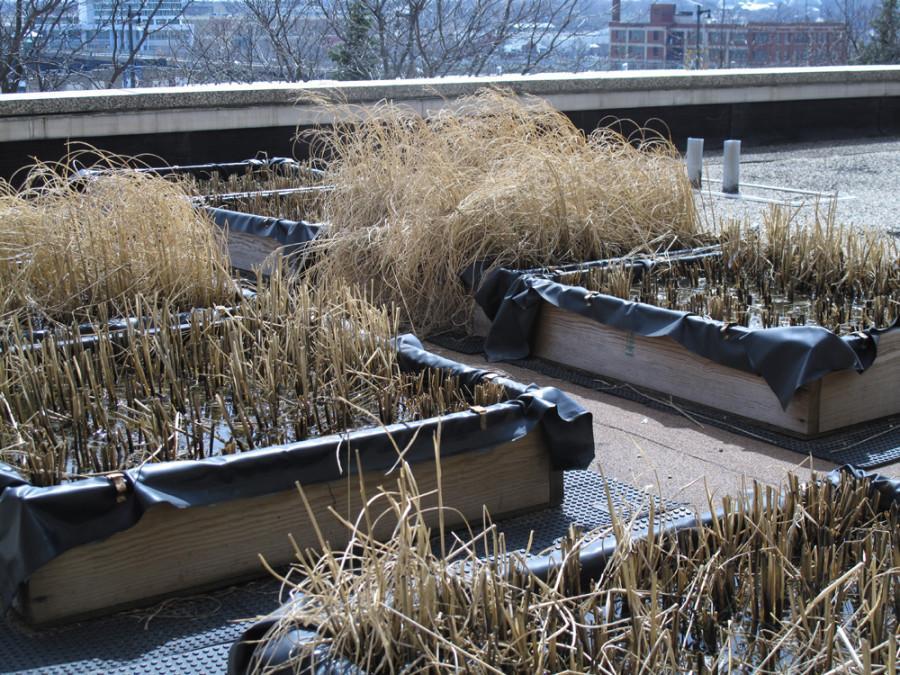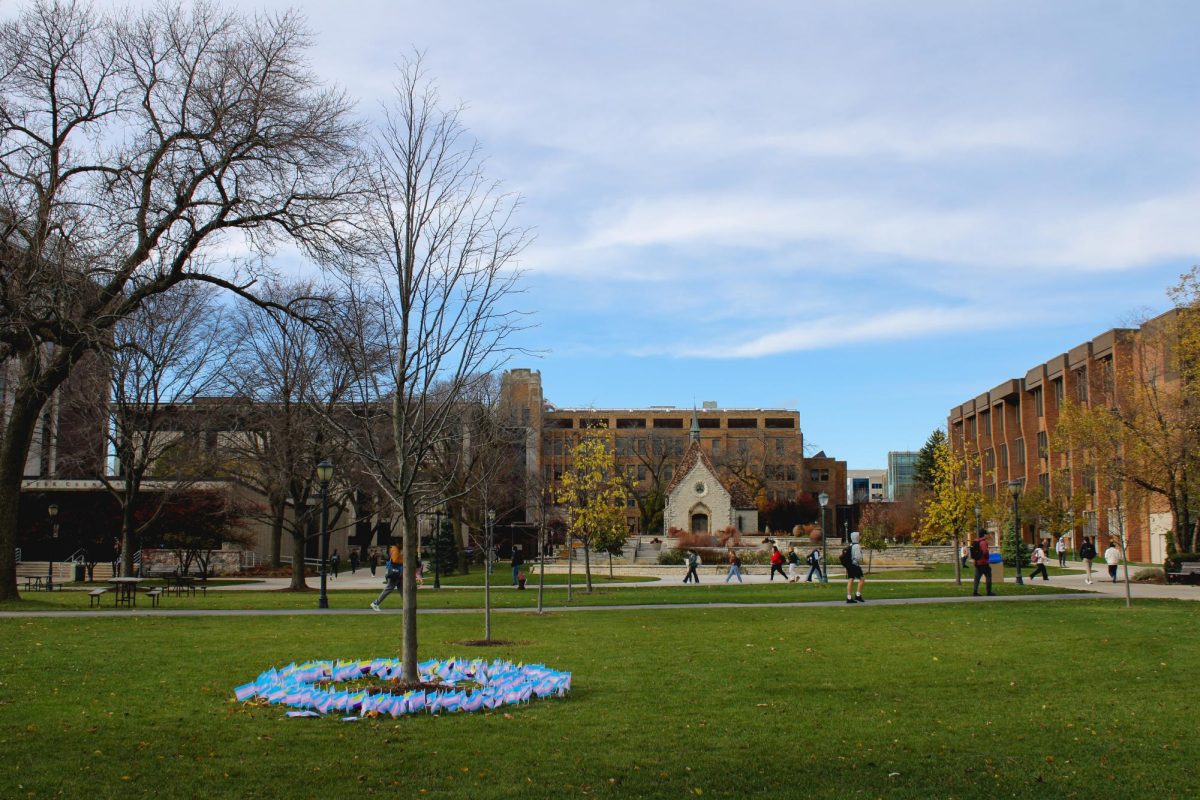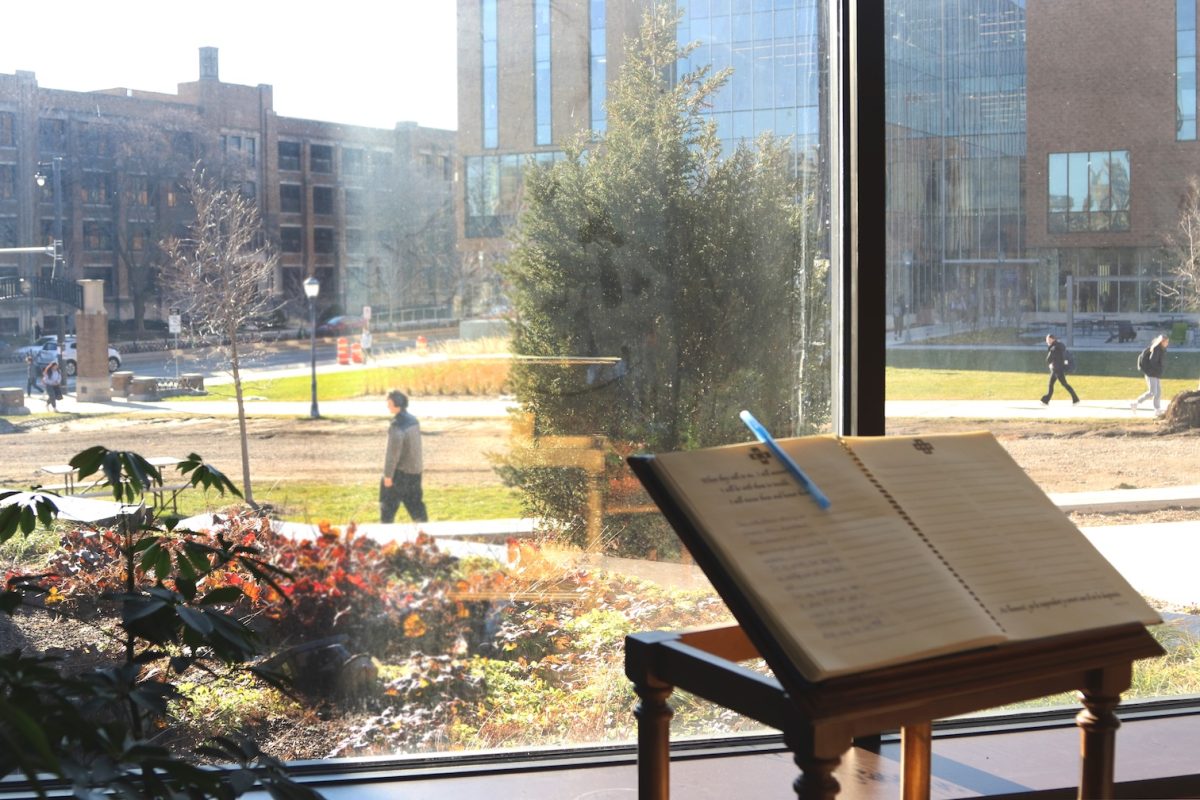Michael Schlappi, an associate professor in the department of biological sciences, had one rice paddy on the roof the Wehr Life Sciences building in 2012.
Now, he has an entire garden of 12 rice paddies.
The second-floor rooftop rice garden is used to research the cold tolerance of rice and determine how the grain can be grown in colder areas of the United States.
Schlappi said he chose the location for a few reasons. The roof is flat and located outside, and it is protected from vandalism and seagulls that like to nosedive into the paddies.
“I like to understand what makes rice so cold sensitive,” Schlappi said. “So I’d like to understand the cell or molecular mechanisms: Why that is? What genes are involved? So the hardcore science I’m doing is researching that.”
Schlappi also said he loves the community engagement of his research, which he refers to as soft-core science. He teamed up with Venus Williams, executive director of Alice’s Garden, and made it a mandatory service learning component for his plant biology students. The students interact with minority farmers and urban gardeners by helping them harvest and asking questions that pertain to the class.
“So our vision is maybe we can start growing rice in Southeastern Wisconsin,” Schlappi said. “It has an ecological component because California has so much drought and a lot of rice is grown in California, and there might be a time when they just don’t allow it anymore.”
As a researcher and a plant biologist, Schlappi said he started the rice research because he is always interested in where things come from and how they work. Rice comes from a southern climate, but can survive colder temperatures through artificial selection. He discovered rice starts to die at 54 degrees Fahrenheit, which he said isn’t too cold.
“What we found out is that even if you put rice in a dish full of water, it’s drying out so there’s a disconnect between water transport and evaporation at a critical temperature,” Schlappi said. “Cold-tolerated rice has a mechanism to avoid that. That’s what really interests me as a researcher.”
Schlappi said he is the “rice guy” because no one else in the area is doing this specific type of research. He handles most of the growing but has two graduate students who help out. He is currently in his fourth round of selection, and so far, most of the plants have survived.
It wasn’t easy for Schlappi to receive the OK from the university to follow through with his rice research. Facilities services was concerned about leaking from the rooftop garden. Schlappi convinced them it would not be an issue, and sealing was laid down for extra protection though he considered it unnecessary.
In addition, there is a liability issue with the roof location, should people ever decide to jump off. Schlappi said he technically cannot have undergraduates work with him, and graduate students only can after they are trained in risk management.
In the future, Schlappi hopes to expand the rice research beyond the rooftop and integrate it onto campus.
“It would be great if we could maybe have paddies on campus where it’s part of the landscape,” Schlappi said. “It would be educational too. So we’ll see about that.”






